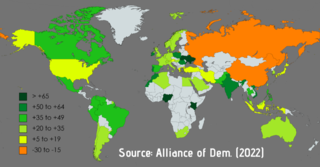
Euroscepticism, also spelled as Euroskepticism or EU-scepticism, is a political position involving criticism of the European Union (EU) and European integration. It ranges from those who oppose some EU institutions and policies, and seek reform, to those who oppose EU membership and see the EU as unreformable. The opposite of Euroscepticism is known as pro-Europeanism, or European Unionism.

The Green Left is a democratic socialist political party in Denmark.

Venstre, full name Venstre, Danmarks Liberale Parti, is a conservative-liberal, agrarian political party in Denmark. Founded as part of a peasants' movement against the landed aristocracy, today it espouses an economically liberal, pro-free-market ideology.
The Social Democrats is a social democratic political party in Denmark. A member of the Party of European Socialists, the Social Democrats have 50 out of 179 members of the Danish parliament, Folketing, and three out of fourteen MEPs elected from Denmark.
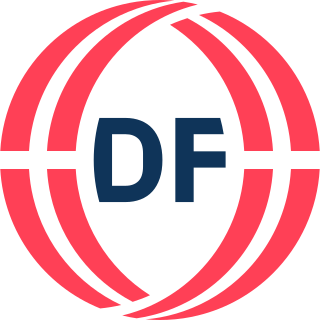
The Danish People's Party is a nationalist and right-wing populist political party in Denmark. It was formed in 1995 by former members of the Progress Party (FrP).

The 2004 European Parliament election was held between 10 and 13 June 2004 in the 25 member states of the European Union, using varying election days according to local custom. The European Parliamental parties could not be voted for, but elected national parties aggregated in European Parliamental parties after the elections.
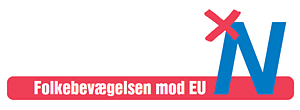
The People's Movement against the EU is a far-left political association in Denmark against the European Union. It was founded in 1972 as a cross-party campaign platform for a 'no' vote in Denmark's referendum on EEC membership. The People's Movement was represented in the European Parliament from 1979 until 2019, when it lost its single seat in the European Parliament election.
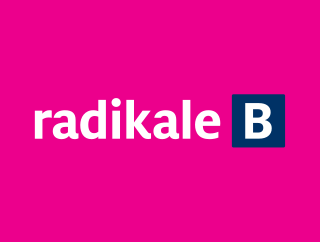
The Danish Social Liberal Party is a social-liberal political party in Denmark. The party was founded as a split from the Venstre Reform Party in 1905.

The political groups of the European Parliament are the officially recognised parliamentary groups consisting of legislators of aligned ideologies in the European Parliament.

General elections were held in Denmark on 8 February 2005. Prime Minister Anders Fogh Rasmussen's Venstre remained the largest party in the Folketing and his governing coalition with the Conservative People's Party remained intact, with the Danish People's Party providing the parliamentary support needed for the minority government. The Danish Social Liberal Party made the biggest gains of any party, although it remained outside the governing group of parties. The elections marked the second time in a row that the Social Democrats were not the largest party in parliament, a change from most of the 20th century. The Social Democrats lost five seats and leader Mogens Lykketoft resigned immediately after the elections. Voter turnout was 85% in Denmark proper, 73% in the Faroe Islands and 59% in Greenland.

European Parliament elections were held in Denmark on 10 June 1999 to elect the 16 Danish members of the European Parliament.
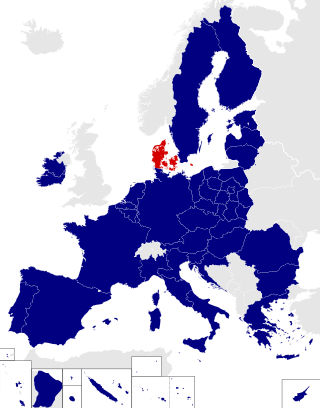
Denmark is a European Parliament constituency for the elections to the European Parliament covering the Member state of the European Union Denmark, but not other parts of the Danish Realm such as the Faroe Islands or Greenland, which are not a part of the EU. It is currently represented by fifteen Members of the European Parliament. Denmark uses the D'Hondt method of proportional representation. Electoral alliances between two or more parties are allowed.

General elections were held in Denmark on 15 September 2011 to elect the 179 members of the Folketing. Of those 179, 175 members were elected in Denmark, two in the Faroe Islands and two in Greenland.

European Parliament elections were held in Denmark on 15 June 1989 to elect the 16 Danish members of the European Parliament.

European Parliament elections were held in Denmark on 9 June 1994 to elect the 16 Danish members of the European Parliament.
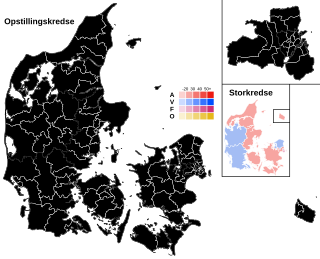
European Parliament elections were held in Denmark on 7 June 2009 to elect the 13 Danish members of the European Parliament. The election was held simultaneously with a referendum on changing the Danish Act of Succession.

The European Conservatives and Reformists (ECR) is a soft Eurosceptic, anti-federalist political group of the European Parliament. The ECR is the parliamentary group of the European Conservatives and Reformists Party European political party, but also includes MEPs from other European parties and MEPs without European party affiliation.

The politics of Denmark take place within the framework of a parliamentary representative democracy, a constitutional monarchy and a decentralised unitary state in which the monarch of Denmark, King Frederik X, is the head of state. Denmark is a nation state. Danish politics and governance are characterized by a common striving for broad consensus on important issues, within both the political community and society as a whole.

The 2014 European Parliament election in Denmark was an election held in Denmark on 25 May 2014 to decide who would represent Denmark in the European Parliament (EP) from 2014 to 2019. The Danish People's Party with 26.6% of the votes became the largest party for the first time in a nationwide Danish election.

The 2019 European Parliament election in Denmark was held on 26 May 2019, and elected the Danish members to the European Parliament. The elections are part of the EU-wide elections for the parliament. Denmark had 13 seats in parliament, which increased by one additional seat following Brexit.




















